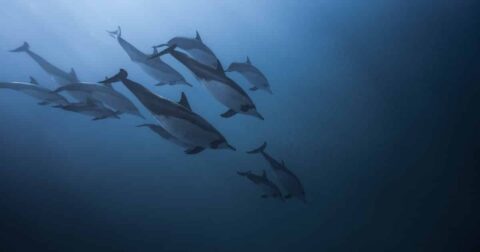Investigation
What Does a Small Town Do When the Water Is Undrinkable?
Climate•8 min read
Analysis
New report released by the Aquatic Life Institute underscores the importance of aquatic animal welfare in achieving global sustainable development goals.


Words by Christine Xu
The Aquatic Life Institute (ALI) released a new report, Benefits of Aquatic Animal Welfare for Sustainability, highlighting the intersectionality between improved aquatic animal welfare and sustainable development. More importantly, it urges all public policy-makers and other relevant stakeholders to start taking aquatic animal welfare into consideration when developing sustainable development policies moving forward.
The report identifies ten priority areas in which aquatic animal welfare considerations go hand in hand with global environmental and sustainability targets. In this critical year, with the first UN Food Systems Summit and the UN Food and Agriculture Organization developing new guidelines on sustainable aquaculture, the report comes at an opportune time to stress that aquatic animal welfare should not be left behind in our effort in achieving the Sustainable Development Goals. Moreover, with support from various ocean conservation and animal welfare organizations from ALI’s coalitions, this report speaks also as a unified voice calling for higher representation of aquatic animal welfare globally.
“With a food production system that is highly intensive coupled with low animal welfare, the result is weaker immune systems among animals and therefore more disease and need for antibiotics. This feedback loop greatly affects the environment and ecosystem, and ultimately lowers resource efficiency and productivity—the opposite of sustainability,” says Christine Xu, Head of Strategic Initiatives at the Aquatic Life Institute.
“We need an urgent change to our sustainable development discourse. Meaning, we need to start seeing aquatic animals as equally important as land animals and that we need to include aquatic animals’ welfare into account if we want to achieve sustainable aquaculture, fisheries, and food systems,” adds Xu.
As consumer demand is expected to rise for seafood in the coming years, further strain from overfishing, climate change, and unsustainable production methods will be placed on our fragile ecosystems and harm the people and animals that rely on them most.
The Aquatic Life Institute has submitted the report to the UN FAO’s Committee on Fisheries, urging for more dialogue and consideration of these priorities as they revise their Guidelines on Sustainable Aquaculture, which could set the tone for global aquaculture development for decades to come.
“It is our objective to show that animal welfare considerations are inextricably linked to ethical, environmental and social issues, and therefore should be an integral component of sustainable development policies moving forward,” says William Bench, Founder of ALI.
“These recommendations offer a robust framework for implementing meaningful welfare interventions that allow for aquatic animals to have a life worth living, and in the context of global development, provide adaptive measures for aquaculture and fisheries to truly ensure sustainable and humane development,” concludes Bench.